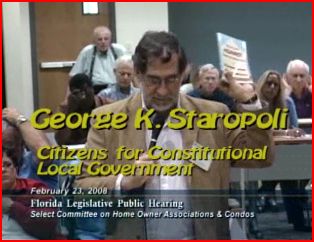FL Session Law, Ch. 229 (2023), “Homeowners’ Associations Bill of Rights,” adds the following section imposing misdemeanor charges against certain violations for fraudulent elections.
FL § 720.3065. “Fraudulent voting activities relating to association elections; penalties.—Each of the following acts is a fraudulent voting activity relating to association elections and constitutes a misdemeanor of the first degree, punishable as provided in s. 775.082 or s. 775.083”
This is a landmark bill that imposes criminal penalties on the conduct of the HOA and all persons involved in fraudulent HOA elections. Recent court decisions have held the private government HOAs are public entities with respect issues concerning the governance of the HOA.

Criticism of the board’s conduct is subject to the constitutional protections of free speech. The Nevada Supreme Court opinion in Kosor ((Kosor v. Olympia Companies, NV No, 75669 (Dec. 31, 2020)) held that HOAs are public forums and referenced several California opinions serving as legal precedent.
“[A] unit owner’s association or a planned community association (association) may not prohibit a unit owner or member (member) from peacefully assembling and using private or common elements of the community . . . legitimate and valid criticisms of your HOA and its president and board are protected from HOA lawsuits of defamation and libel.”
I find it incredible that there are homeowner rights advocates who find it difficult to see how challenges of constitutionality apply to private government HOAs. The 14th Amendment, Section 1, in part, “No state shall make or enforce any law which shall abridge the privileges or immunities of citizens of the United States.”
